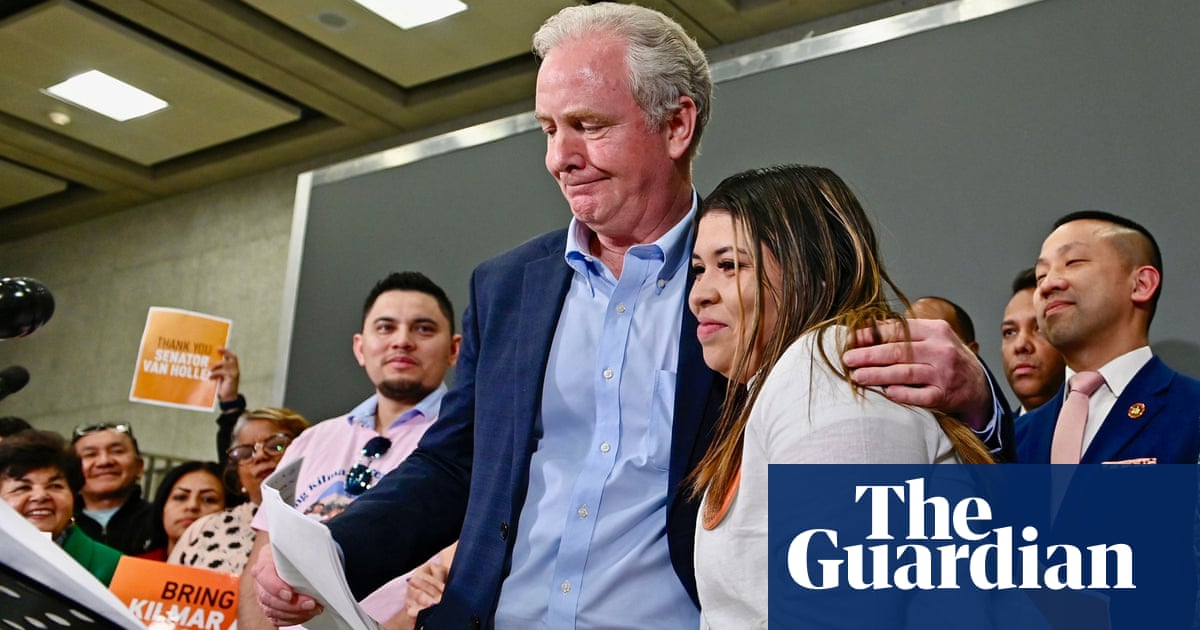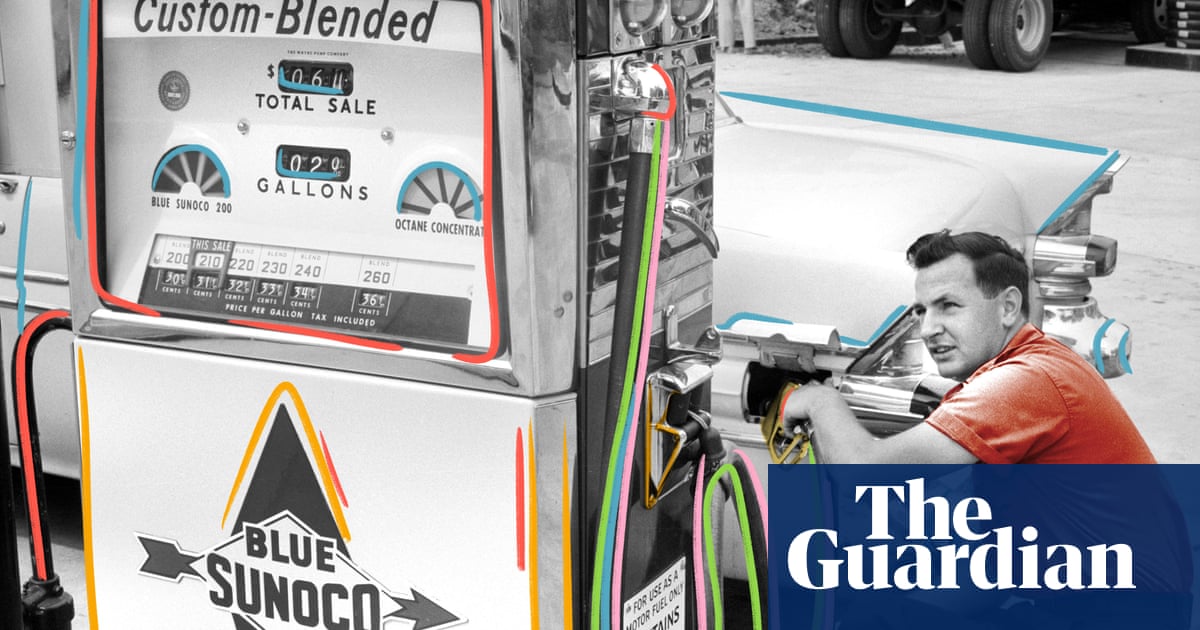In the year preceding the devastating Los Angeles county wildfires, big oil fiercely lobbied to kill a “polluter pay” bill that moved through the California senate and would have forced major fossil fuel companies to help cover the costs of climate disasters.
Fossil-fuel industry lobbying in California spiked to record levels during the 2023-24 legislative session, and the polluter pay bill was among the most targeted pieces of legislation, a Guardian review of state lobby filings found.
The bill was included in about 76% of 74 filings last year from two top lobbying forces in the state – oil giant Chevron and the Western States Petroleum Association, the largest fossil-fuel trade group in California.
Chevron and Western States’ filings that included polluter pay totaled over $30m, although it is impossible to know spending levels for individual bills because lobbying laws do not require a breakdown. Others in the lobbying blitz included at least 34 of the world’s largest oil producers, industry trade groups, and a range of greenhouse gas-polluting companies such as Phillips 66 and Valero, records show.
The measure would have required the state’s largest carbon polluters to pay into a fund that would be used to prevent disasters or help cover cleanup efforts. The effort to thwart it leaves taxpayers for now shouldering much of the cost of catastrophes in part fueled by big oil’s pollution.
“The latest fire shows exactly how Californians are paying for climate destruction, not just with budget dollars, but with their lives, and it shows exactly why we need … to put the cost back on polluters” said Kassie Siegel, an attorney for the Center for Biological Diversity, which has lobbied in support of the bill.
The legislation, called the Polluters Pay Climate Cost Recovery Act of 2024, has new life in the wake of the Los Angeles catastrophe, its supporters say, but the industry is already mobilizing. On the day after the wildfires started, Western States launched an ad campaign implying such measures would force them to increase oil prices.
Western States and Chevron did not respond to requests from the Guardian for comment.
The Los Angeles fires as of Tuesday had killed at least 25 people and burned 12,000 structures, making the crisis the second most destructive wildfire event in California. In terms of economic damage, many expect it to surpass the deadly 2018 Camp fire that destroyed Paradise and nearly 19,000 structures.
Though the wildfires’ impact on the state budget is unclear, the 2018 California fire season caused nearly $150bn in damage to the US economy, peer-reviewed research found. Meanwhile, the fossil-fuel industry’s efforts to kill the polluter pay bills come as California faces a $32bn budget shortfall – a figure expected to grow in the fires’ wake.
By contrast, Chevron recorded $30bn in profits in 2023, the last full year for which figures are available, and enacted a $75bn stock buyback program designed to enrich its executives and investors. Big oil’s top producers and trade groups spent over $80m lobbying in California last session, records show.
Just 57 companies are thought to be responsible for 80% of greenhouse gas emissions.
They are “desperately trying to avoid accountability”, said Meghan Sahli-Wells, a former mayor of Culver City, which is about seven miles from the nearest fire and holds several high burn risk areas.
“Accountability is an existential threat to their business model, and their business model is an existential threat to all of us, and that’s the bottom line,” added Sahli-Wells, who is now with Elected Officials To Protect America, a progressive environmental advocacy group.
The legislation would have effectively created a tax for fossil fuel producers and a “climate superfund” that would help cover climate disaster costs. The state would identify the biggest greenhouse gas polluters who emitted more than 1bn metric tons between 2000 and 2020, which would include about 40 companies.
After determining its climate costs, the state would divide that figure among the polluters. A legislative analysis estimated it could generate tens of billions of dollars annually, which would be put in a “Polluters Pay Climate Fund” and dispersed as needed.
The bill would have required two-thirds approval in the legislature because it is a tax, but it never made it to the floor for a vote because of a lack of support, especially among Republicans and centrist Democrats, those familiar with the issue say.
Still, the bill passed three committees, and though the industry ultimately derailed it, that achievement has supporters feeling optimistic.
The industry lobbyist pressure on lawmakers to oppose the legislation was intense, state senator Henry Stern, a bill co-author, told the Guardian. Stern said they argued that the law would lead to higher energy prices, and also threatened to shut down refineries. They also contended that they are already being “taxed” on carbon emissions in the state’s cap-and-trade program, so they should not have to pay a new fee.
“It’s been a pretty combative conversation,” Stern said. He added that some Democrats shared oil companies’ concern about being taxed twice, but he said the current carbon pricing program aims to mitigate emissions and largely uses tax revenue to push the state toward clean energy.
The polluter pay bill is something else entirely. It would pay for damages caused by the pollution, which the carbon pricing does not cover, and is a major strain on the state budget, Stern said. The federal government helps cover costs, but a hostile incoming Trump administration may not, he added.
“When the next flood or fire hits, and the federal government plays politics – do we have a back-up plan other than bankruptcy or gutting the education budget to pay for a fire ravaged state?” Stern asked. Frequent disasters are pushing the insurance market to the brink of collapse, and that may help pick up some moderate Democrat and GOP support for a bill, he added.
But potential new polluter pay legislation may not look the same as last session. Instead of functioning as a tax, it may include a trigger which would require companies to help cover the costs in the event of a disaster, instead of continuously paying into a fund, Stern said. That would eliminate the need for two-thirds approval in the legislature.
Moreover, the effort got a “major boost” last week when the state of New York enacted a similar “climate superfund” bill, Siegel said.
Though the industry successfully killed the California bill, several measures it opposed in recent years, like a ban on fracking, anti-price gouging measures, and limits on oil wells, have all passed over big oil’s objections, Siegel added.
But the industry appears to be mobilizing to head off any such effort. Though the social-media ad campaign launched by Western States on 8 January, does not specifically mention the polluter pay bill, it echoes the 2024 campaign that did.
One ad reads “California needs energy policies that balance affordability, reliability, and sustainability – not ones that make life harder” and urges readers to contact their legislator.
Western States’ decision to run the ads as the disaster ignited is “gobsmacking”, said Duncan Meisel of Clean Creatives, a campaign to convince advertisers to cut ties with the fossil fuel industry that first reported the industry’s ads.
“I’m normally pretty measured about this stuff because I understand that it’s hard to run an agency, but this is despicable,” Meisel said. “It’s absolutely wrong.”

 3 months ago
49
3 months ago
49













































